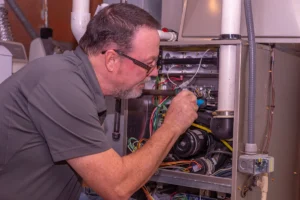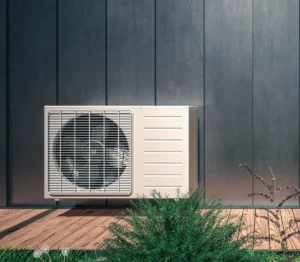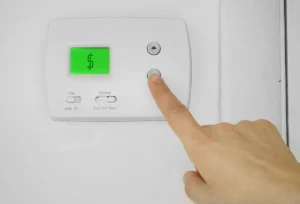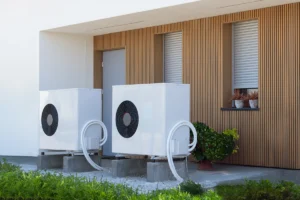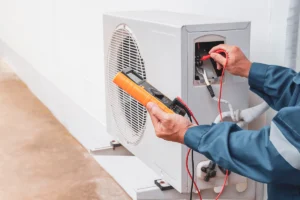If your HVAC system won’t start—or it makes a strange humming or buzzing noise—it could be a sign of a faulty run capacitor. This small, inexpensive part plays a surprisingly large role in keeping your air conditioner, heat pump, or furnace operating properly. When it fails, your entire system can stop working.
At Sub Zero Temp Control, we’ve seen how something as simple as a bad capacitor can bring everything to a halt. So in this guide, we’re breaking down what a run capacitor does, why it can fail, and how to tell when it’s time for a replacement.
What Is a Run Capacitor?
A run capacitor is a cylindrical electrical component found in many HVAC systems. It stores energy and provides a continuous electrical charge to the motor, helping it maintain consistent operation. You’ll typically find them attached to the compressor, blower motor, or condenser fan motor.
Without a working run capacitor:
The motor may not start at all.
The system could overheat or shut down unexpectedly.
Energy usage may spike due to inefficiency.
Even though this part is small, it plays a critical role in your system’s performance and lifespan.
Why the Run Capacitor Is So Important
When your air conditioner kicks on, the run capacitor helps the motor start and keeps it running efficiently. Without it, the motor may struggle to stay energized, which causes unnecessary strain. That strain often leads to premature failure—not just of the capacitor, but also of the motor itself.
That’s why many HVAC technicians test capacitors during routine maintenance. Replacing one early can prevent much more expensive repairs down the line.
Signs Your Run Capacitor Might Be Failing
The System Won’t Start
If your system is completely unresponsive—even though the thermostat is calling for cooling or heating—the run capacitor might not be delivering power to the motor.
The Unit Is Buzzing
A loud humming or buzzing sound from the outdoor unit can mean the compressor is trying to start but can’t. This often points to a bad capacitor.
Weak or Intermittent Airflow
If the blower motor isn’t getting consistent power, airflow through your vents may weaken or stop altogether.
Short Cycling
When your system starts and stops repeatedly, it may be overheating due to a capacitor failure.
Why a Run Capacitor Fails
Like most parts, a run capacitor has a limited lifespan. But there are several reasons it might fail sooner than expected:
Age: Most capacitors last 5–10 years.
Heat Exposure: High outdoor temps can damage the capacitor’s internal components.
Electrical Surges: Power spikes, including lightning strikes, can fry the capacitor.
Wear and Tear: Continuous cycling during peak heating or cooling seasons speeds up failure.
Once the capacitor fails, your HVAC system may appear completely dead—or start acting erratically.
Can You Test or Replace It Yourself?
Since capacitors store electrical energy even when the power is off, they can be dangerous. Here are a few key safety tips every homeowner should know. Touching the terminals without discharging it first can result in a serious electrical shock. That’s why we strongly recommend leaving this job to a licensed HVAC professional.
At Sub Zero Temp Control, we test run capacitors with specialized meters that measure capacitance. If the reading is out of spec, we replace it with the correct model rated for your system.
Preventing Run Capacitor Problems
While you can’t prevent every failure, a few simple habits can help extend your system’s life—and the life of your run capacitor:
Keep Your System Maintained
Annual checkups help identify weak capacitors before they fail.
Change Air Filters Regularly
Good airflow reduces stress on motors and the capacitor.
Keep the Outdoor Unit Clear
Remove leaves, debris, and overgrown plants to prevent overheating.
Use a Surge Protector
Sudden power surges can damage sensitive HVAC parts like the run capacitor. This safety fact sheet from UC Berkeley offers helpful tips on preventing overloads and protecting your equipment.
When to Call a Professional
If your HVAC system won’t start, makes unusual noises, or runs inconsistently, the run capacitor could be to blame. But even if it’s something else, it’s best to have a professional take a look before a minor issue becomes a costly repair.
At Sub Zero Temp Control, we’ve seen it all—from quick capacitor swaps to full system diagnostics. We’re here to help you get back to comfort fast—and keep your system running at its best.
Don’t Let a Bad Run Capacitor Catch You Off Guard
Your run capacitor may be one of the smallest parts in your HVAC system, but it plays a critical role in keeping things running smoothly. If you’re noticing warning signs or your system won’t start at all, it’s time to get it checked out.
Need help diagnosing your HVAC issue? If you’re in Vancouver, WA or one of the surrounding areas, contact Sub Zero Temp Control today. Our experienced technicians will get your system back on track—fast, honest, and done right the first time.


